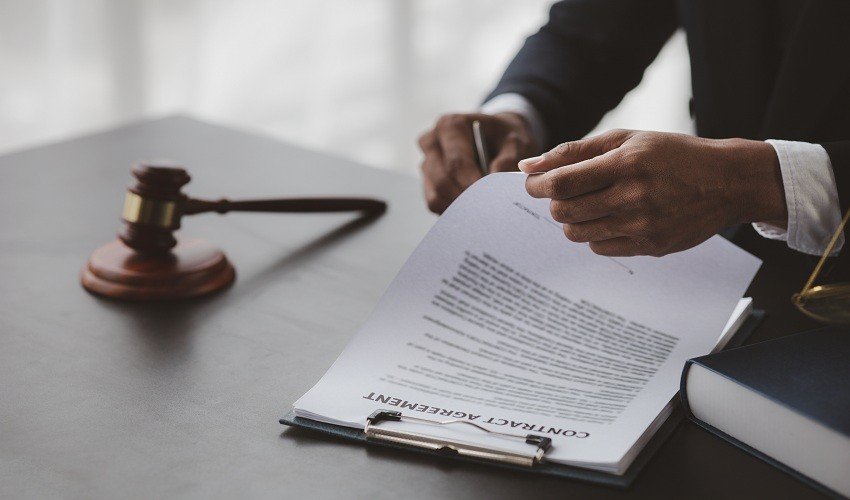Following up with your attorney is crucial to ensuring that your legal matters are handled efficiently. Communication plays a significant role in the attorney-client relationship, and understanding how to follow up effectively can make a big difference in your case’s outcome. In this article, we’ll share practical strategies for following up with your attorney, helping you stay informed and engaged throughout the legal process.
Understand the Importance of Follow-Up
When navigating legal issues, following up with your attorney is essential. It keeps the lines of communication open and helps you stay updated on your case. Whether you’re awaiting important documents, clarifications, or updates, consistent follow-up can prevent misunderstandings and ensure that your attorney has everything needed to represent you effectively. Recognizing this importance lays the foundation for effective communication.

Establish a Clear Communication Plan
Before diving into follow-up strategies, it’s crucial to establish a clear communication plan with your attorney. During your initial meetings, discuss how and when you prefer to communicate. Some clients prefer emails, while others may prefer phone calls. By establishing this plan early on, you set expectations for both yourself and your attorney. This clarity will also help you understand the best times to reach out and how often to follow up.
Be Prepared with Specific Questions
When following up with your attorney, it’s important to come prepared. Before reaching out, take some time to write down any specific questions or concerns you may have. This preparation helps you stay focused during the conversation and ensures you don’t forget to address any important points. Moreover, having a clear list of questions shows your attorney that you are engaged and serious about your case.
Choose the Right Time to Follow Up
Timing can significantly impact the effectiveness of your follow-up. After your attorney has promised to provide information or updates, it’s essential to give them reasonable time to do so. However, if you have not heard back after a few days or a week, it’s perfectly acceptable to follow up. Remember that your attorney is likely managing multiple cases, so be patient while ensuring your needs are met.
Utilize Various Communication Channels
Depending on your established communication plan, use various channels to follow up with your attorney. If email is your primary method, consider sending a concise and polite email detailing your questions. If your attorney prefers phone calls, a quick call can often lead to a more immediate response. Some attorneys may also offer secure messaging through their websites. Utilizing these channels effectively helps ensure your follow-ups are received and addressed promptly.
Keep Your Follow-Up Messages Clear and Concise
When reaching out to your attorney, aim to keep your messages clear and concise. Provide relevant information, such as your case number or specific dates, to help your attorney quickly identify your case. Avoid lengthy messages filled with unnecessary details, as these can dilute the main points you want to convey. A well-structured follow-up will make it easier for your attorney to respond effectively.
Show Appreciation for Your Attorney’s Efforts
A little appreciation can go a long way. When following up with your attorney, acknowledge their hard work and efforts. A simple “Thank you for your help” can make the interaction more positive. This appreciation helps foster a good working relationship and shows your lawyer that you value their time and expertise. Positive communication encourages your attorney to prioritize your case further.
Document All Correspondence
Keeping a record of all correspondence with your lawyer is essential for several reasons. Not only does it help you keep track of what has been discussed, but it also provides a reference for future follow-ups. This documentation can be particularly useful if there are any misunderstandings later on. Make it a habit to save emails, notes from phone calls, and any other relevant communication to ensure you have everything documented.
Follow Up on Action Items
After meetings or discussions with your attorney, ensure you follow up on any action items discussed. If your attorney needs to complete certain tasks or you have agreed on next steps, checking in on their progress is important. This follow-up shows that you are proactive and committed to moving your case forward. It also provides an opportunity to clarify any uncertainties regarding the actions taken.
Know When to Seek Additional Help
If you find that your follow-up efforts are consistently ignored or if communication becomes difficult, it may be time to consider seeking additional help. This doesn’t necessarily mean firing your attorney, but it does indicate that the relationship needs reevaluation. Consider speaking to another attorney for advice or guidance on how to navigate the situation. Your legal representation is crucial, and you must feel supported throughout the process.
Smart Financial Recovery and Balanced Breaks
MaxGardner.com empowers individuals with clear guidance on bankruptcy filing, debt relief, and consumer rights—offering tools like calculators and real‑life case strategies to promote financial resilience :contentReference[oaicite:1]{index=1}.
We understand the importance of maintaining balance during challenging times, which includes taking mindful, well‑deserved breaks.
For those seeking a sharp mental reset between financial planning sessions, try a responsible round of real money blackjack.
A controlled leisure moment can sometimes bring renewed clarity to tough decisions.
Conclusion
In conclusion, effectively following up with your attorney is vital for a successful legal experience. By understanding the importance of communication, establishing a clear plan, and being prepared with specific questions, you can ensure that you stay informed and engaged. Utilizing various communication channels, keeping messages clear, and showing appreciation can help foster a positive relationship with your attorney. By following these strategies, you can navigate your legal matters with confidence and clarity.












3 thoughts on “Strategies for Following Up with Your Attorney”
Comments are closed.